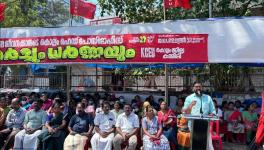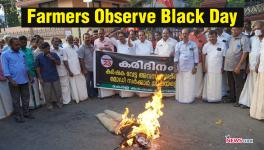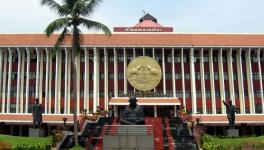Kerala Industry Policy Aims to Build Industry 4.0 Ecosystem
Representational use only.Image Courtesy: Wikimedia Commons
Kerala’s new industrial policy aims to build the state into an Industry 4.0-ready industrial ecosystem by 2028. The policy lists several focus sectors, including nanotechnology, biotechnology and advanced digital technologies, like 3D printing, artificial intelligence (AI), and the Internet of Things (IoT).
With rapid strides made to convert Kerala into an investor-friendly state, the LDF government wants to attract investment in emerging sectors like AI and electric vehicles.
The policy’s main objectives include building a robust entrepreneurial ecosystem, making Kerala a start-up destination, enhancing ‘Brand Kerala’, tapping the potential of unemployed youth, upgrading traditional industries and strengthening infrastructure to cater for futuristic industries.
The government has identified seven policy focus pillars to achieve the 25 listed objectives besides announcing the next financial year as the ‘Year of Investment’. The policy has several incentives to encourage investment from micro, small and medium enterprises (MSMEs) and mega projects.
TOWARDS INDUSTRY 4.0
The gross state domestic product (GSDP) grew at 12% in 2021-22 with the industrial sector contributing a healthy 23%. Despite the impact of the floods and the pandemic, the industrial sector recorded a growth rate of 17.3%.
With its focus on MSMEs, the policy has explored different avenues, including AI and 20 other sunrise sectors—electronic system design and manufacturing, biotechnology and life sciences, EVs, food tech, graphene, high-value-added rubber products and maritime cluster.
Kerala State Planning Board member V Namasivayam, explained the focal thrust of the policy to Newsclick. “The policy is about focussing on MSMEs, new-generation technologies, improving traditional sectors and importance to the environment, and social and governance concerns,” he said.
Though Kerala has achieved high rankings in human development indices (HDI), the industrial sector has lagged recently in attracting massive investment.
“Kerala has higher HDI rankings with highly qualified people. The new policy aims to match the human resource potential available in the state,” he said.
‘INTEGRATED APPROACH FOR BETTER OUTCOME’
The department of industry has announced the next financial year as ‘Year of Investment’ to attract more investment in the industrial sector. The policy aims to set up a technology innovation zone, digitisation of services in the department and become a hub for start-ups, among others.
Though the IT industry does not fall under the industrial sector, the boom in the state has called for an integrated approach to harvest the maximum out of the industry. The massive jump in IT exports has put the state on notice, leading to increased investment in the sector. The LDF government has been concentrating on improving the presence of IT giants by ensuring infrastructure in different cities.
On efforts to create a common platform to ensure a holistic and integrated approach of various departments, Namasivayam said, “This is the first state-level policy with a long-term path looking beyond the industry department, including human resource development and IT sector in an attempt to combine the efforts of different government departments to achieve the desired goal.”
THRUST ON ‘BRAND KERALA’
The government also wants to focus on traditional industries and ‘Make in Kerala’, which need better economic viability and exposure.
Kerala is known for its traditional industries, including coir, cashew, handloom and handicrafts, which contribute significantly to the economy. Given the recent dip in these sectors, the policy has prepared a road map to modernise and make them more sustainable.
“Coir is a traditional industry which requires a significant amount of labour force. How science and technology can be used for design and respond to the market for improving productivity and better economic viability is being addressed,” Namasivayam said.
Kerala depends on imports for the consumption of several goods, which the industry policy aims to change. The state has several unique products, including food items which are on high demand across the country and other parts of the world.
“We have to respond to our demands for which organising and incentivising the production process is essential,” Namasivayam said.
The government aims to cater for the national and international markets through innovative measures. One of the policy's objectives is “to build the brand equity of ‘Kerala’ and enhance its world-class quality products, skills, service and manpower”.
“Even though the beginning is by catering for the fundamental domestic demand, the aim is to build a competitive industry which is nationally and internationally competitive and able to supply,” Namasivayam said.
The policy lists several incentive schemes to achieve these goals, including investment subsidy on fixed capital, apprenticeship incentive, electricity duty exemption, intellectual property creation incentive, and waiver of stamp duties.
Get the latest reports & analysis with people's perspective on Protests, movements & deep analytical videos, discussions of the current affairs in your Telegram app. Subscribe to NewsClick's Telegram channel & get Real-Time updates on stories, as they get published on our website.
























